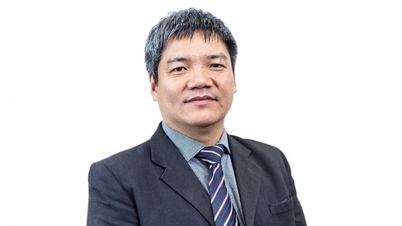
There are many simple ways to dispel excessive worry.
The Year of the Dragon 2024 is coming and brings with it many ambitions, as many people set new goals such as being determined to exercise, eat more scientifically to lose weight, or learn many new things.
Those thoughts are enough to make you anxious. For people who already struggle with anxiety, these heightened expectations can be even more stressful. Especially since research shows that many of us don't follow through on our New Year's resolutions.
The New York Times recently asked a few experts to come up with specific strategies for people with anxiety, broken down into steps that anyone can try and succeed at. Above all, they advise you not to feel pressured to try these steps.
"You can re-evaluate your life at any time and ask yourself what you could do differently. The point is to change your life the way you want it to be," says New York-based psychologist Regine Galanti, who specializes in treating people with anxiety disorders.
Resolve to face something that worries you
Research shows that directly confronting the things that make us anxious can help break our tendency to fear and avoid them. You can do this with a therapist, a process clinicians call exposure therapy, or you can do it on your own.
Start by asking yourself, "How is feeling anxious keeping me from having the life I want?" or "What would my life be like if I were calmer?" advises Dr. Galanti.
For example, you might respond, “I would travel more often if I worried less,” or “I would speak up more often if I didn’t worry so much.”
Then, instead of waiting to feel more relaxed, map out steps you can take now to achieve your goals.
Dr. Galanti suggests breaking your fear down into smaller components that are easier to face and creating an action plan to help keep you accountable for tracking your progress.
Year of the Dragon, see fortune for people born in the year of the dragon
Resolve to focus on values instead of worries
Telling yourself you're less anxious "signals your brain to focus on the anxiety more," says Dr. Galanti.
Being a little anxious is part of being human, so trying to get rid of it completely won't work. So instead of focusing on your anxiety, think about the personal traits you value. Complete serenity probably won't do the trick.
“Does anyone really want their tombstone to say: He was calm?” asked David Tolin, director of the Anxiety Disorders Center at the Life Institute (USA).
What kind of person do you want people to remember you as? A caring husband or wife? A loyal friend? A hard worker? Once you've identified your values, do something meaningful to demonstrate them.
For example, if generosity is important, consider volunteering in your community, even if you're nervous about stepping out of your comfort zone.
Determined to find a different perspective
Imagine a man is arguing with his wife. He begins to worry that she no longer loves him and thinks she is secretly planning a divorce.
Catastrophizing, which is becoming worried that a situation is more risky than it actually is, is linked to anxiety disorders.

Experts advise you to think about what you worried about last year and realize that the worst case scenario probably didn't happen.
Angela Neal-Barnett, a psychology professor at Kent State University, recommends thinking about what you worried about in the past year. It’s possible that the worst-case scenario didn’t happen. Maybe the amount of anxiety you felt about a particular problem wasn’t worth it. Or maybe you surprised yourself by handling a difficult situation successfully. What was the most important thing you learned?
Write down your observations so you can refer back to them if excessive worry or fear starts to creep in again. Another strategy is to reach out to a trusted, less anxious friend and ask what they would do.
Resolve to take care of yourself
Experts say this doesn't necessarily mean luxuries like massages or personal trainers, but rather basics like whether you're getting enough sleep, whether you're eating nutritious foods, or whether you're exercising.
Dr. Neal-Barnett recommends “filling in the blanks” and setting goals for what your self-care routine should include when you’re feeling anxious or fearful. This list might include relaxing activities like calling a friend, practicing deep breathing, or going outside for some fresh air.
It's hard for anxious people to take time off, but it's one of the best things they can do, according to Dr. Neal-Barnett.
Source link




![[Photo] Conference of the Government Party Committee Standing Committee and the National Assembly Party Committee Standing Committee on the 10th Session, 15th National Assembly](https://vphoto.vietnam.vn/thumb/1200x675/vietnam/resource/IMAGE/2025/10/15/1760543205375_dsc-7128-jpg.webp)
![[Photo] General Secretary To Lam attends the 18th Hanoi Party Congress, term 2025-2030](https://vphoto.vietnam.vn/thumb/1200x675/vietnam/resource/IMAGE/2025/10/16/1760581023342_cover-0367-jpg.webp)





































![[Video] TripAdvisor honors many famous attractions of Ninh Binh](https://vphoto.vietnam.vn/thumb/402x226/vietnam/resource/IMAGE/2025/10/16/1760574721908_vinh-danh-ninh-binh-7368-jpg.webp)


































































Comment (0)